Wild Animals in Hong Kong
With Hong Kong being a small city with dense human population, many people may overlook her rich biodiversity. In fact, there are many mammals in Hong Kong, with more than 50 species recorded, including monkeys and wild pigs.
Monkey
Monkeys are mainly distributed in Kam Shan, Lion Rock, Shing Mun Country Parks and Tai Po Kau Nature Reserve in Hong Kong. The species includes Rhesus Macaque (Macaca mulatta), Long-tailed Macaque (M. fascicularis) and their hybrids. Hong Kong falls within the range of natural distribution of the Rhesus Macaque (Macaca mulatta). However, the original wild stock is believed to have become extirpated. The existing wild monkey populations are considered as the descendants of the individuals which have been introduced to the Kowloon Hills, i.e. Kam Shan and Lion Rock Country Parks in the 1910s.

The total population of wild macaques in Hong Kong is estimated at 1,800 individuals. They live in troops that can reach up to 200 individuals. Their natural diet includes forest leaves, flowers, shoots, roots and barks as well as insects as supplements. AFCD has planted suitable trees in country parks to provide plenty of natural food for monkeys.
Interesting behaviours:
- Storing food in their cheek pouches like hamsters
- Grooming, including taking bugs (i.e. insects, tangled fur) and debris out of the fur of each other, is a part of their social behaviours
- Opening mouth and jumping towards human is a part of their defensive behaviours; however, they usually do not attack if direct gazing is avoided
- Their face and rump will become more red during mating seasons
Wild Pig
Wild Pig (Sus scrofa) is the largest native terrestrial mammal in Hong Kong with adults weighing up to 200 kg and reaching a body length up to 2 m. They have thick and short bristly coats of brownish grey to black colour. Young wild pigs are born with a coat of chocolate and cream coloured stripes along their torso. This pattern fades within the first six months to one year.

Wild pigs are opportunistic omnivores that feed on bulbs, roots and tubers, as well as earthworms and insects. They are also good swimmers.
Interesting behaviours:
- They are secretive and wary of human contact in general
- They are nocturnal animals (active during the night)
- Adult males are solitary while adult females flock with piglets
“Don’t Feed Wild Animals” Programme
The “Don’t Feed Wild Animals” Programme focuses on deterring suspected feeding activities, raising public awareness and encouraging them to respect wildlife.
With the aim to further engage the public, in addition to school talks, a series of outreaching education activities including guided tours and educational booths around the subject are performed at Piper’s Hill Car Park, Kam Shan or Shing Mun Country Parks.
Public Awareness
In recent years, some wild animals including monkeys and wild pigs have adapted to forage near the border of country parks or even lingering in the human settlements of which leaded to human–wildlife conflicts. Such conflicts would lead to the risk of animal attack, habitat deterioration, traffic accidents or environmental hygiene.
Since July 2018, over 220 free educational booths and 41 eco-tours were held. Educational booths were performed at Piper’s Hill Car Park, Kam Shan or Shing Mun Country Parks, over 32,000 people received the message of ‘Don’t feed wild animals’.
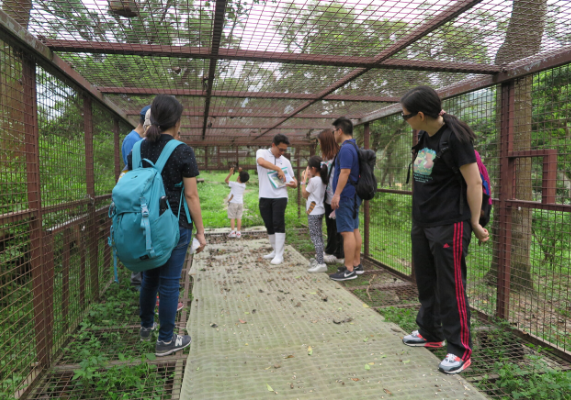 |
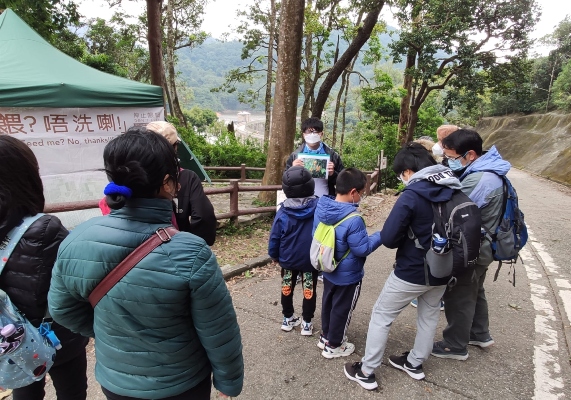 |
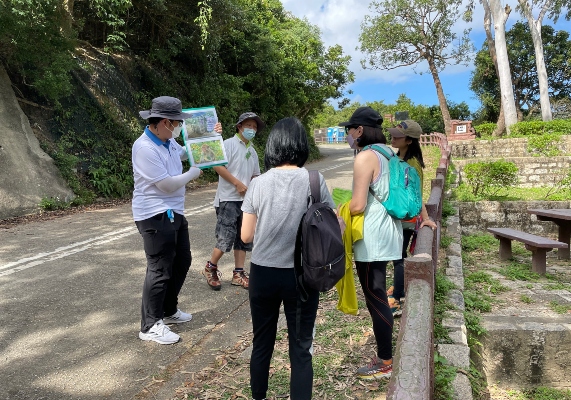 |
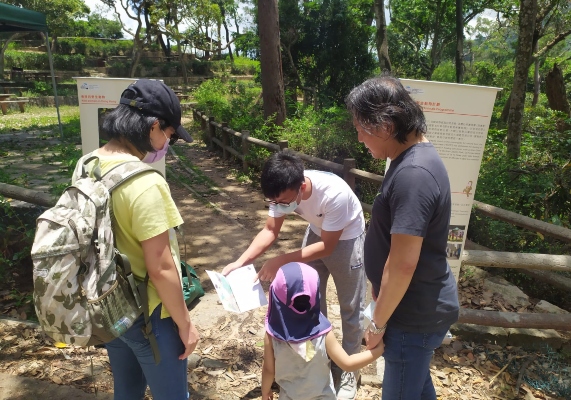 |
Deter Suspected Feeding Activities
In addition to conveying the message on not feeding wild animals, during the operation of educational booth, OPCFHK team often observe some suspected feeding activities. For instance, people are holding human food in the presence of monkeys or deliberately leave bulk food behind. Hence, OPCFHK team spares no effort to stop any suspected feeding activities on site.
School Talks
In order to enhance public understanding on the proper ways of interacting with wildlife, OPCFHK and AFCD have designed teaching materials suitable for kindergartens and primary schools students used to support over 252 sessions of free school talks. The talks mainly introduce the commonly seen monkeys and wild pigs in Hong Kong and the correct behavior when encountering these wild animals, such as not feeding them. Students can also gain practical knowledge through interactive games.
Children in kindergarten will participate in a training to become a "Nature Observer". Under the theme of "Nature Observer" Training Class, a fun-yet role-playing and use of five senses in the activity to teach about the natural behaviors of wild animals (including monkeys) and their natural food sources and habitats. Students can develop the correct attitude towards wild animals and to urge actions to promote the message of "Don’t feed wild animals". A story book will be distributed to each kindergarten to extend the environmental education in other classes.
The theme for the talk in primary schools is “Wild Animal Science Classroom". STEM teaching-approach will be applied to introduce the basic ecology and biology of wild animals. Students are encouraged to discuss and apply knowledge been taught to reduce the human-wildlife conflict problem.
The school talks are now open for registration. Please download and complete the application form and fax to 25535840. Limited slots are available and will be allocated on a first-come-first-served basis.
Click here to download Kindergarten talks details and application form *The quota for 2022/23 is full.
Click here to download Primary school talks and application form *The quota for 2022/23 is full.
 |
 |
Get Involved
Passionate in spreading the words and helping the precious wild life in Hong Kong? Join us and be our volunteer! “'Don’t Feed Wild Animals' Volunteer Programme" aims to promote the message of not feeding wild animals whilst engaging the public to be a conservation ambassador. For more details, please click here.
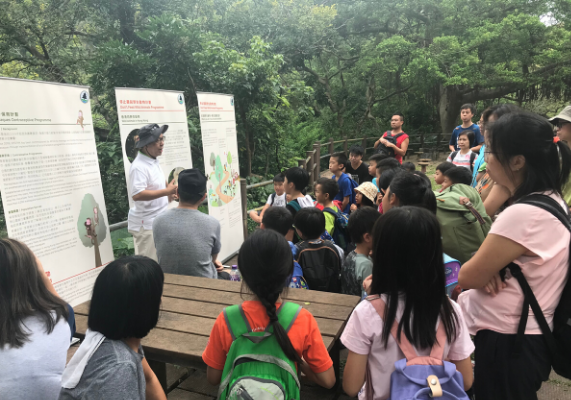 |
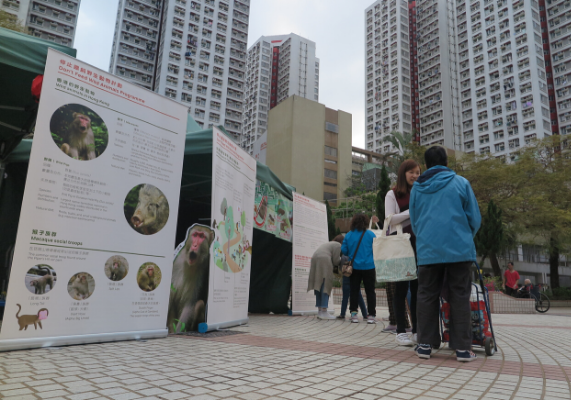 |
